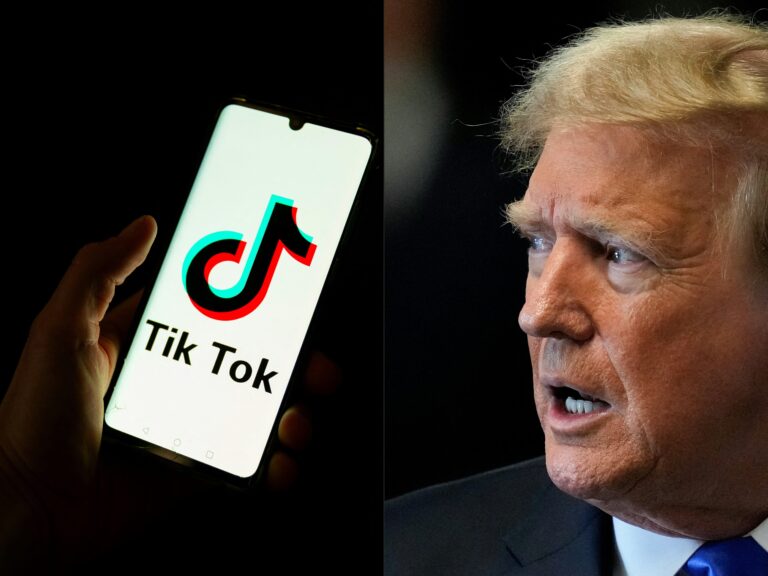Unpacking the TikTok Ban Debate: Security, Politics, and Global Tech Dynamics
The intensifying discussion around a potential TikTok prohibition in the United States has become a focal point of national discourse, revealing intricate overlaps between technology, security concerns, and international relations. In a recent installment of Washington Week with The Atlantic on PBS, analysts and lawmakers delved into the complex political landscape shaping the proposed limitations on this widely used social media platform. Rising apprehensions about data protection, foreign interference, and safeguarding national interests highlight broader challenges related to digital sovereignty and the governance of technology on a global scale.
National Security Risks Fueling the Push to Restrict TikTok
At the heart of the TikTok controversy lies a profound worry about national security. U.S. officials and legislators have voiced concerns that TikTok, owned by the Chinese firm ByteDance, could serve as a conduit for espionage or influence operations orchestrated by foreign actors. The platform‚Äôs extensive data collection‚ÄĒranging from geolocation to user behavior analytics‚ÄĒraises alarms about potential access by the Chinese government under its national security statutes, threatening the privacy of American users and possibly exposing sensitive government data. These issues have galvanized bipartisan momentum toward either imposing stricter regulations or enacting a comprehensive ban.
- Data Exposure Risks: Suspicions that TikTok might transmit user data to the Chinese Communist Party.
- Propaganda and Misinformation: The platform’s potential role in spreading targeted disinformation campaigns within the U.S.
- Strategic Economic Concerns: Dependence on Chinese technology possibly undermining critical national infrastructure.
| Security Issue | Possible Consequences |
|---|---|
| Massive Data Collection | Compromise of confidential user and governmental information |
| Algorithmic Influence | Promotion of divisive or deceptive content to manipulate public opinion |
| Supply Chain Vulnerabilities | Risk of tampered hardware or software components |
In defense, TikTok has consistently refuted these allegations, underscoring its dedication to protecting user privacy and enhancing data security. The company has suggested initiatives such as storing U.S. user data domestically and increasing operational transparency to address governmental apprehensions. Nonetheless, skeptics maintain that these efforts may not fully eliminate the risk of foreign interference. This debate encapsulates a broader struggle involving technology policy, international diplomacy, and national defense, mirroring the wider complexities of U.S.-China relations beyond just social media platforms.
Political Divides and Shared Concerns in Regulating Social Media
The U.S. Congress remains split on the best approach to managing TikTok’s presence, reflecting deeper partisan divides over digital privacy and security. Republican lawmakers predominantly advocate for immediate bans, emphasizing the platform’s connections to the Chinese government and the associated security threats. They argue that TikTok endangers American users’ privacy and could be exploited for intelligence gathering, pressing for swift legislative action. Conversely, Democrats tend to favor a more cautious strategy, promoting comprehensive reforms that apply to all social media platforms rather than isolating TikTok. They stress the importance of protecting free speech and due process, cautioning against policies that might lead to excessive censorship.
Despite these differences, some bipartisan consensus has emerged around enhancing transparency and safeguarding user data. Both parties agree on the necessity of stronger protections for American digital platforms, though the methods to achieve this remain debated. The table below outlines key positions from each side, illustrating the nuanced nature of the discussion:
| Republican Viewpoint | Democratic Viewpoint |
|---|---|
| Advocate for immediate TikTok prohibitions Prioritize national security imperatives |
Oppose outright bans Focus on protecting digital rights and legal safeguards |
| Support executive actions and laws targeting foreign-owned apps | Promote broad privacy legislation encompassing all platforms |
| Emphasize sovereignty over user data and its protection | Aim to balance security concerns with civil liberties |
Broader Impact on U.S.-China Relations and International Tech Governance
The TikTok controversy is emblematic of a larger strategic rivalry between the United States and China, where technology serves as both an economic asset and a national security battleground. This conflict transcends a single application, marking a critical juncture in defining global standards for data privacy, digital autonomy, and the regulation of emerging technologies. As the U.S. enforces tighter controls on Chinese tech firms, China is accelerating efforts to achieve technological self-sufficiency, which risks fragmenting the global technology landscape into competing blocs. This division could hamper innovation and restrict market access worldwide.
Responses to the TikTok issue highlight the delicate balance between protecting national interests and maintaining an open digital economy. Key considerations include:
- Evolution of Data Security Policies: Developing frameworks that manage international data flows without hindering technological progress.
- Global Collaboration: Establishing multilateral agreements to set standards that reduce risks while preserving global connectivity.
- Diplomatic Engagement: Sustaining communication channels between the U.S. and China to avoid escalation into full technological decoupling.
| Dimension | U.S. Strategy | China’s Approach |
|---|---|---|
| Data Privacy | Restrictive policies focusing on foreign app oversight | Promotion of indigenous alternatives and enhanced tech sovereignty |
| Technological Innovation | Support for domestic advancements in AI and 5G | Increased investment in R&D and export restrictions |
| Diplomatic Relations | Measured, strategic decoupling efforts | Assertive push for self-reliance |
Strategic Policy Directions: Harmonizing Privacy, Expression, and Innovation
Developing effective policies that reconcile the often competing demands of privacy protection, free speech, and technological innovation requires a sophisticated, transparent, and accountable framework. Lawmakers should focus on data protection laws that not only secure user information but also provide clear, fair content moderation guidelines that respect freedom of expression. Encouraging collaboration among governments, technology firms, and civil society can help create adaptable regulations that keep pace with rapid technological change.
Practical policy initiatives might include:
- Independent Algorithm Audits: Regular reviews to identify bias or undue censorship in content delivery systems.
- International Partnerships: Cooperation on cybersecurity standards and cross-border data governance.
- Innovation Incentives: Funding and support for startups prioritizing privacy-centric designs and open-source technologies.
| Policy Area | Recommended Action | Anticipated Benefit |
|---|---|---|
| Transparency in Data Use | Mandatory reporting on data collection and usage practices | Enhanced user confidence and trust |
| Content Regulation | Establish clear user appeal mechanisms for content decisions | Safeguarding of free speech rights |
| Support for Innovation | Grants and incentives for privacy-first technology development | Acceleration of responsible technological progress |
Conclusion: Navigating the Future of Digital Sovereignty and Security
The ongoing deliberations over TikTok’s fate in the United States serve as a microcosm of the larger geopolitical and technological challenges shaping the 21st century. As policymakers weigh the imperatives of national security against the values of digital freedom and economic vitality, the outcome will have far-reaching implications beyond a single app. This debate is a defining moment in the evolving narrative of global tech governance and U.S.-China relations. Washington Week with The Atlantic will continue to provide in-depth coverage as this critical conversation unfolds.







